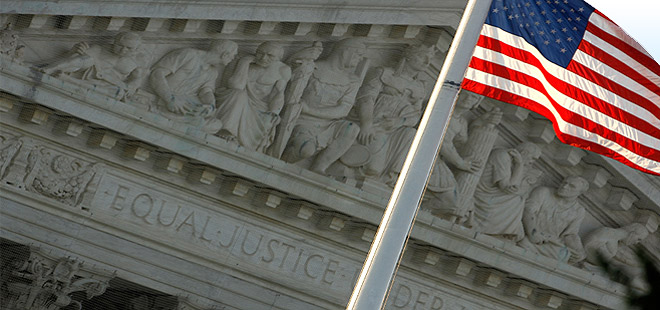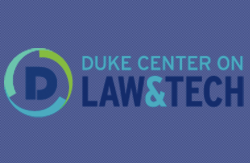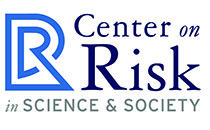Centers, Institutes, and Programs
Duke Law School is home to 16 centers, institutes, and programs in which faculty engage in cutting-edge research and education on subjects of critical importance to the law, public policy, and society.

The Bolch Judicial Institute advances the rule of law through the study of courts, judicial decision-making and legal institutions; judicial education and training; and civic education initiatives.

The Duke Center for Criminal Justice and Professional Responsibility promotes justice in criminal cases by identifying, remedying, and preventing the wrongful conviction of innocent people.

The Duke Center for Firearms Law is dedicated to the development of firearms law as a scholarly field. It seeks to do so through the development and support of reliable, original, and insightful scholarship, research, and programming on firearms law that will be useful to lawyers, policy makers, and the interested layperson.

The Center for Innovation Policy at Duke Law addresses fundamental issues of law and policy affecting innovation. The center brings a scholarly focus to cross-cutting policies relevant to innovation generally and to sector-specific areas such as the life sciences, information and communications technology, and energy-related technology.

Launched in 2006, Duke Law School’s Center for International and Comparative Law (CICL) coordinates and supports the School’s programs, resources, and events in the areas of international law, comparative law, and U.S. foreign relations law.

The Center for Law, Economics, and Public Policy organizes workshops, conferences, and other scholarly activities in the area of law and economics, with a particular focus on the intersection between welfare economics and normative questions regarding legal frameworks, institutions and doctrines

Founded in 1993, the Center on Law, Ethics and National Security promotes education and discussion of the complex and diverse issues involved in national security, such as the legal and policy implications of counterterrorism operations at home and abroad, the role of the respective branches of government in security matters, the international law of armed conflict, the impact of security issues on international business endeavors, and the ethical issues of the practice of national security law.

The Center on Law, Race & Policy seeks to advance understanding of the interplay between race and law through educational programming, knowledge production, and community engagement.

The Program on Negotiation & Dispute Resolution is dedicated to helping people solve problems by empowering them to achieve better outcomes through improved communication and constructive dialogue.

The Wilson Center for Science and Justice brings together faculty and students in law, medicine, public policy, and arts and sciences to pursue research, policy and law reform, and education in three areas: accuracy of evidence in criminal cases; the role of risk in criminal outcomes; and addressing a person’s treatment needs as an alternative to arrest and incarceration.

The Center for Sports Law and Policy at Duke Law School is a forum for sports law and policy-related engagement and programming at the University. Consistent with Duke’s interdisciplinary strengths, the work of the Center examines the business of professional, Olympic, and education-based sport; the welfare of athletes, including their health and educational development; and the promise of sport as a social good.

The Center for the Study of the Public Domain advances research and scholarship on the contributions of the public domain to speech, culture, science and innovation. The center promotes debate about the balance needed in our intellectual property system and works to translate academic research into public policy solutions.

The Horvitz Program in Constitutional & Public Law promotes a better understanding of our nation’s public institutions, of the Constitutional framework in which they function, and of the principles and laws that apply to the work of public officials through scholarship, workshops, conferences, and curricular programs.

The Duke Center on Law & Technology prepares students for the growing landscape of technology in the legal profession through collaboration with Duke’s innovative and entrepreneurial initiatives, engagement with local entrepreneurs, and by providing educational opportunities at the intersection of technology and the law.

The Duke Center on Risk is a multidisciplinary collaboration focused on improving society’s capacity to analyze, anticipate, mitigate, and adapt to risks. Hosted at Duke’s Initiative for Science & Society, the Center on Risk builds on the university’s already significant risk‐related teaching and scholarship by fostering new partnerships across campus.

Science & Society is an interdisciplinary initiative that examines science and technology in the context of law, ethics, philosophy, sociology, and public policy. Our educational and engagement programs prepare you take on some of the most challenging issues of our time.